The Irrawaddy revisits a story from 2018 looking at Myanmar’s past and current presidents.
YANGON — Since gaining independence from the British in 1948, Myanmar (formerly known as Burma) has been governed by two types of president. From the post-independence period until dictator Ne Win’s coup d’état in March 1962, the country had democratically elected heads of state. Under military rule from that year to the end of the quasi-civilian government that was in power from 2011-2016, successive generals installed handpicked protégés. But with the inauguration of President U Htin Kyaw in March 2016, the people of Myanmar witnessed the return of civilian government for the first time in 54 years.
Sadly, civilian rule in Myanmar was short-lived. With the military takeover against the democratically elected National League for Democracy government in February 2021, the country’s fledgling civilian rule came to an end.
Here is a list of Myanmar’s post-independence presidents until the coup last year.
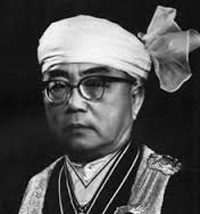
Sao Shwe Thaik (1894 — 1962)
Sao Shwe Thaik, an ethnic Shan, was the first president of the Union of Myanmar and the last Saopha — or hereditary prince — of Shan State’s Yawnghwe. Sao Shwe Thaik served as the head of state alongside Prime Minister U Nu, from the date of Myanmar’s independence on Jan. 4, 1948 until March 12, 1952. Before he was President, Sao Shwe Thaik had served in the British army. When General Ne Win took power in a military coup in 1962, the Shan prince was arrested. He later died in prison.
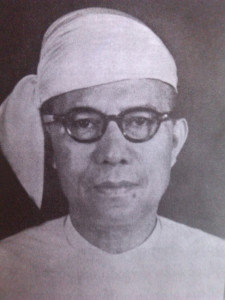
Dr. Ba U (1887 — 1963)
Dr. Ba U was the second president of Union of Myanmar and an ethnic Bamar. Ba U graduated with a law degree from the University of Cambridge and served as the chief justice of the Supreme Court of Myanmar before he succeeded Sao Shwe Thaik as president in March 1952. He served in the position for five years, until March 1957.
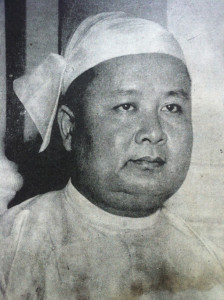
Mahn Win Maung (1916 — 1989)
Mahn Win Maung was an ethnic Karen Buddhist and the third president of Union of Myanmar. As a former government minister, he was selected by Prime Minister U Nu for the presidency and succeeded Dr. Ba U in March 1957. Mahn Win Maung served until March 1962, when General Ne Win ousted U Nu’s government in a military coup. He was then imprisoned for five years.
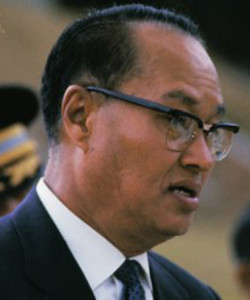
General Ne Win (1910 — 2002)
Born as Shu Maung, U Ne Win briefly took control of Myanmar in 1958, during a period of military rule known as the Caretaker Government. He came to power more permanently in March 1962 through a military coup and would act as Myanmar’s head of state for nearly 20 years, until Nov. 9, 1981. A military commander of Bamar-Chinese descent, he founded the Burma Socialist Program Party (BSPP) in 1962 and served as its chairman until 1988, resigning during the student uprisings that year. Throughout this period, the BSPP was the only legal political party in the country, and through it U Ne Win championed the nationalization of business and ushered in a period of intense xenophobia. U Ne Win remained the commander-in-chief of the military for a total of 26 years. He later died while under house arrest in Yangon.
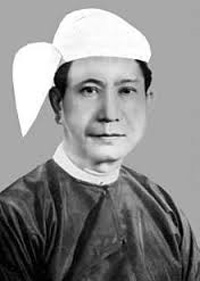
General San Yu (1918 — 1996)
Gen. San Yu, also of Bamar-Chinese descent, was the commander-in-chief of Myanmar’s military and the fifth president of the country, which was then known as the Socialist Republic of the Union of Burma. He served from November 1981 until July 1988, a time during which U Ne Win was still the BSPP party chairman. Before Gen. San Yu became president, he played an integral role in drafting the military’s 1974 Constitution.
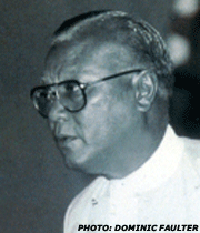
Brigadier General Sein Lwin (1923 — 2004)
Brig. Gen. Sein Lwin, an ethnic Bamar, served as the sixth president of Myanmar for only 17 days, during a period of intense pro-democracy uprisings. During his rule — from July 27 to August 12, 1988 — he was better known as the “Butcher of Rangoon” for giving the order on Aug. 10, 1988, to open fire on student demonstrators near Yangon General Hospital. The protests continued until Brig. Gen. Sein Lwin stepped down. He was reportedly taken care of by the government, and provided with cars, food and support for many years that followed.
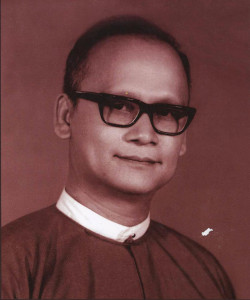
Dr. Maung Maung (1925 — 1994)
Dr. Maung Maung, an ethnic Bamar, was the seventh president of the Union of Myanmar and a well-known writer. He studied law at the Netherland’s Utrecht University and at Yale University in the US, and served as chief justice under U Ne Win’s BSPP government. He served as president for only one month — from Aug. 19 to Sept. 18, 1988 — before being ousted in a military coup led by General Saw Maung. Myanmar’s government would undergo name changes, from the State Law and Order Restoration Council (SLORC) to the State Peace and Development Council (SPDC), led by military men like Senior General Than Shwe. The country would not have another leader with the title of “president” until 2011.
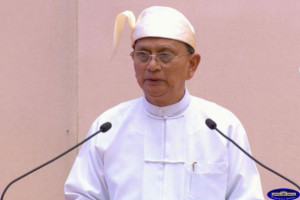
U Thein Sein (1945 — )
Selected by the Union Parliament for the presidency in March 2011, the general-turned-politician became Myanmar’s eighth president after an election that was boycotted by the NLD and described by Western countries as “neither free nor fair.” U Thein Sein served as the prime minister in the previous military regime from 2007 to 2011. In 2010 he retired from the military, where he had attained the rank of brigadier general, and instead led the military-backed Union Solidarity and Development Party. His tenure as the country’s president ended on March 30, 2016.
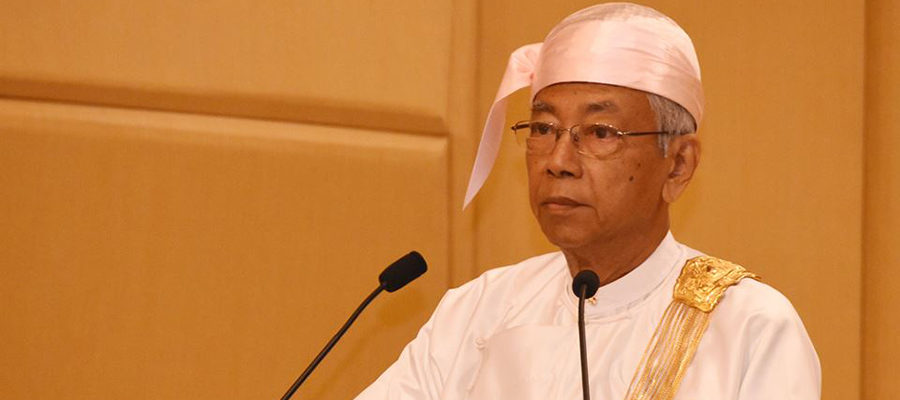
U Htin Kyaw (1946 — )
Current President U Htin Kyaw was born in Yangon in 1946. The second son of respected national poet Min Thuwun, he graduated from the University of London, where he studied computer science. His family has a political pedigree: Min Thuwun was elected to Parliament in 1990 and U Htin Kyaw’s father-in-law, U Lwin, is one of the NLD’s founding members.
U Htin Kyaw was a senior executive with the Daw Khin Kyi Foundation, a non-profit health and education charity named for Daw Aung San Suu Kyi’s mother. He is believed to be one of The Lady’s right-hand men and has a reputation within the NLD as an honest man. His wife, Su Su Lwin, was a Lower House NLD lawmaker and the chairwoman of the chamber’s international relations committee.
U Htin Kyaw is also an author who, being of both Mon and Burmese heritage, wrote under the nom de plume Dala Ban, the name of a famous Mon warrior chosen by his father. He published a book about his father in 2009. His term as president will end on March 30, 2021.
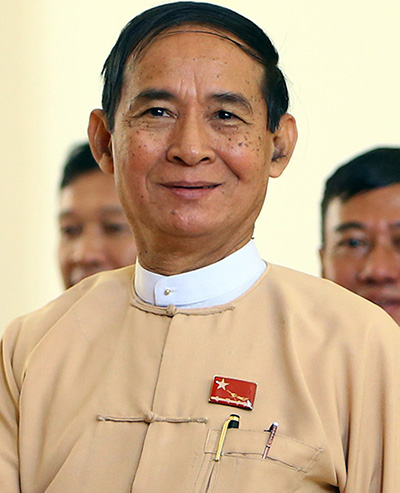
U Win Myint (1951 – )
With his inauguration in 2018, U Win Myint became Myanmar’s 10th president.
The House speaker-turned-president was the second head of state elected by the Daw Aung San Suu Kyi-led National League for Democracy (NLD) government in the space of two years, following U Htin Kyaw’s sudden retirement from the post in the third week of March 2018.
Like the previous president, the one-time lawyer is one of the State Counselor’s allies. A core NLD member since the formation of the party in 1988, the 71-year-old had three electoral victories on the party ticket, being elected for seats in Danubyu (in his home region in the Irrawaddy Delta) in the 1990 election, Irrawaddy’s Pathein Township in the 2012 by-election and Yangon’s Tamwe township in the 2015 election.
During his time in the Lower House, U Win Myint was known to be a strict taskmaster. He often warned lawmakers to do their homework before the parliamentary session and to keep their proposals and questions specific and to the point. The lawmakers were not alone in receiving his stern warnings. Union ministers were also among those faulted for poorly prepared answers in Parliament. Moreover, he has occasionally given military appointees in Parliament a hard time.
Like many other political activists and politicians, U Win Myint was arrested several times by the previous military regime. His latest arrest came on the early morning of Feb. 1 last year when the military staged a coup. The president was told to resign on health reasons or face consequences. Despite the threats, he retorted defiantly to his captors that he would rather die than do what he was told. It has now been more than one year that U Win Myint has been detained at an unknown location while facing several charges filed by the regime.
Editor’s note: This story was updated on March 22, 2022 to include President U Win Myint’s arrest by the regime.

















